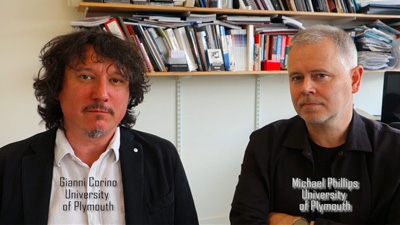Thingbook: The Society of All Things (Humans, Animals, Things and Data)
Abstract
In considering the origin of Things, it is quite conceivable that a designer, reflecting on the mutual affinities of organic and inorganic beings, on their morphological relations, their geographical distribution, cultural succession, social function and other such facts, might come to the conclusion that things had not been independently created, but had descended, like varieties, from other Things. Nevertheless, such a conclusion, even if well founded, would be unsatisfactory, until it could be shown how the innumerable Things, inhabiting this world have been modified, so as to acquire that perfection of structure and coadaptation which justly excites our imagination. In seeking out the future of the origin of Things the authors take a Beaglesque voyage to identify the social, cultural and technological forces which drive the emergence of a Thingbook - a place where all Things converge to define a new phylogenetic tree of networked relationships. With this homage to the Origin of Species (Darwin, 1859), this paper explores the emergence of a society of all Things (Humans, Animals, Things and Data), by mapping the circumstances that have enabled this emergence and identifying the new relationships and behaviours that are developing between Things. It moves beyond morphic and linguistic relationships to the behavioural, performative and predictive qualities of algorithms that provide a DNA for future modification. The Thingbook is both a taxonomy of things, an algorithm for their form and behaviour, which in turn is a generative meshwork of relationships.
Video Extension
Click on the thumbnail below for the video extension on YouTube.
This journal provides immediate open access to its content on the principle that making research freely available to the public supports a greater global exchange of knowledge.
DigitCult is open access gold. Articles are published under a Creative Commons Attribution (CC BY-NC 4.0) licence to support maximum dissemination and use.
With the licence CC-BY, authors retain the copyright, allowing anyone to download, reuse, re-print, modify, distribute and/or copy their contribution. The work must be properly attributed to its author.
It is not necessary to ask further permissions both to author or journal board.



